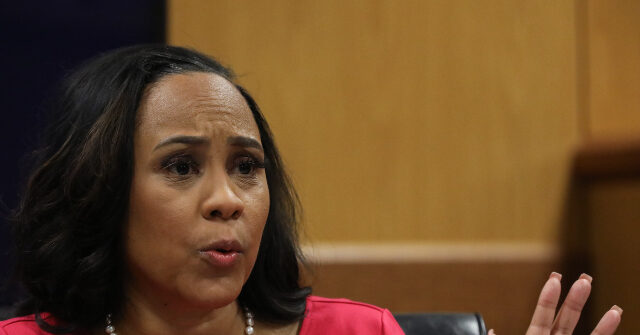The Georgia Court of Appeals has made a significant ruling, disqualifying Fulton County District Attorney Fani Willis from prosecuting the Racketeer Influenced and Corrupt Organizations (RICO) case against President-elect Donald Trump. This decision follows months of criticism aimed at Willis, primarily due to her romantic involvement with special prosecutor Nathan Wade. The court found serious concerns regarding the potential for impropriety in the case, emphasizing that the trial court’s previous remedies were insufficient in addressing these issues adequately. The court’s opinion highlighted the importance of maintaining public trust in the judicial process, declaring that, under these unique circumstances, disqualification was necessary to reinstate confidence in the integrity of the proceedings.
The appeals court articulated that while a mere appearance of impropriety generally does not warrant disqualification, the nature of this case qualifies as an exception. The opinion noted that disqualification was essential to effectively restore public confidence, stating, “this is the rare case in which disqualification is mandated.” Consequently, the court overturned the trial court’s denial of the motion to disqualify Willis and her office completely. It further clarified that since the elected district attorney holds the primary prosecutorial authority, her disqualification effectively extends to the assistant district attorneys under her supervision, who lack the independent ability to prosecute on their own.
Importantly, the court’s ruling does not dismiss the actual indictment against Trump. Instead, it is perceived within Trump’s camp as a significant tactical victory. Following the ruling, Trump advisor Steven Cheung characterized the decision as part of a broader demand by the American populace to curb what he described as the political weaponization of the justice system. He expressed optimism about a potential unification of the country under Trump’s leadership moving forward, asserting the need to dismiss what he called “Witch Hunts” against Trump.
Legal analysts reacted favorably to the court’s decision, including Breitbart News’s senior legal editor Ken Klukowski, who concurred with the judgment to disqualify Willis and her office. He expressed hope that the case could be shifted to a different county’s district attorney, who, in his view, should review the merits of the charges against Trump and potentially drop them unless they exhibit extreme partisan bias similar to that alleged of Willis. Despite the favorable ruling, Klukowski expressed disappointment that the court did not also address the constitutional validity of the indictments against Trump, indicating a desire for a more decisive resolution regarding their legality under the Fourteenth Amendment.
The appeal judges also acknowledged the potential for further legal maneuvering, suggesting Willis might attempt to seek relief from the Georgia Supreme Court. Analysts speculated on the response of the higher court should this come to pass. Some expressed hopes that the Supreme Court might provide more substantial commentary or rulings regarding the constitutional questions raised by the prosecution of Trump, particularly considering claims related to presidential immunity. Analysts referenced the complex legal landscape surrounding the case, emphasizing that the ruling has rendered the prosecution an uncertain endeavor.
Overall, the appeals court’s decision represents a pivotal moment that may influence the trajectory of the legal challenges facing Trump, particularly in Georgia. By disqualifying Willis, the court has not only acted to uphold the integrity of the legal process but has also opened pathways for further examination of the constitutional implications of the charges laid against Trump. With the case now considered a “zombie case” according to some legal experts, there remains uncertainty about the future of the indictment and the prosecutorial approach going forward, moving into an uncertain political and legal climate that will require careful navigation by all parties involved.

